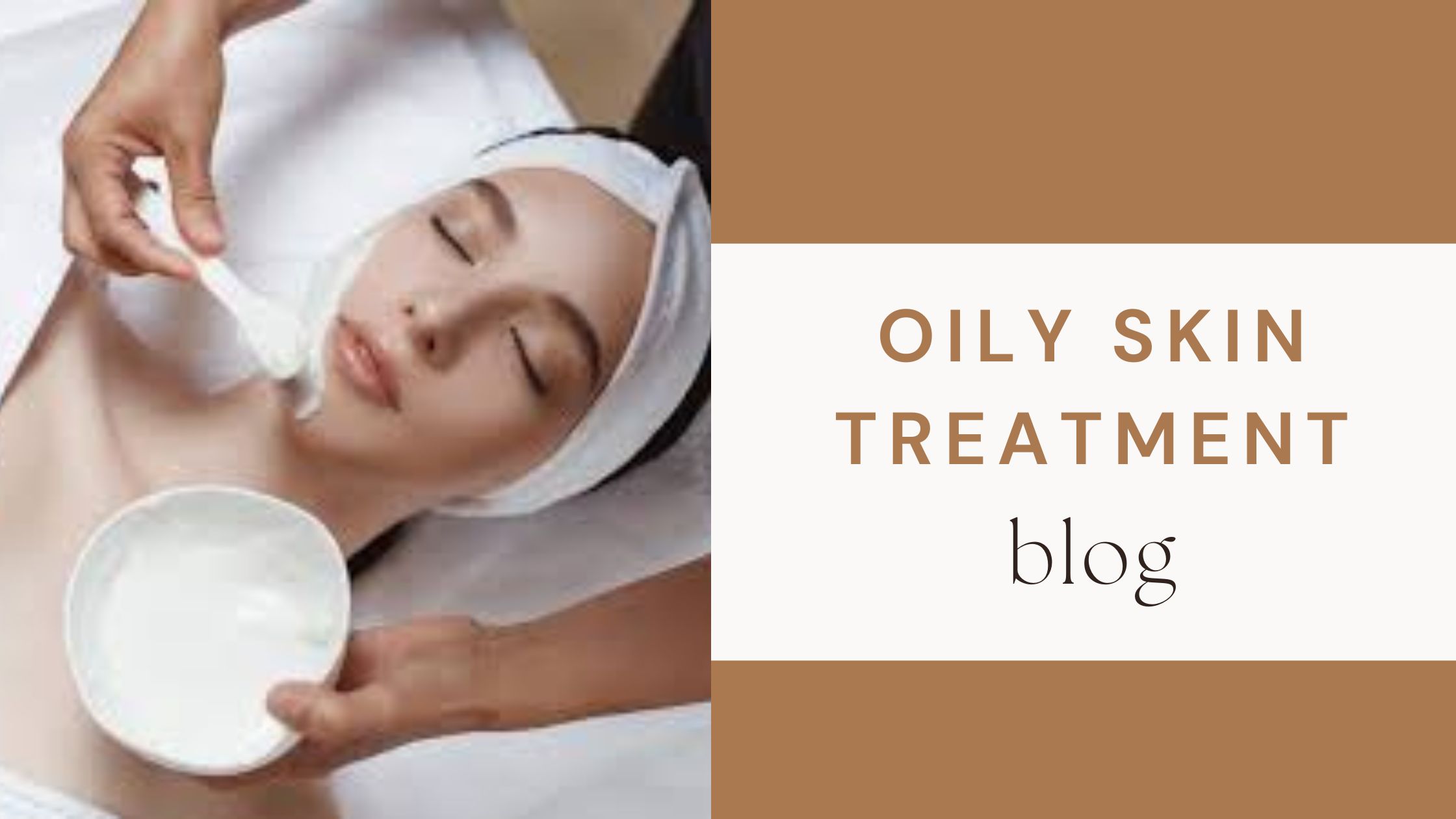Oily Skin Treatment: Effective Solutions for a Balanced Complexion

Understanding Oily Skin
A typical worry for many people is oily skin, which is defined by an excess of sebum production. Although this natural oil is necessary to keep the face hydrated, it can make the skin look glossy and raise the risk of acne. For treatment to be effective, it is essential to comprehend the causes of oily skin.
Causes of Oily Skin

Several factors contribute to oily skin:
- Genetics: Having a family history of oily skin can make you more likely to get it yourself.
- Hormonal Changes: Fluctuations during puberty, menstruation, or pregnancy can stimulate oil production.
- Diet: Consuming high-glycemic foods and dairy products may exacerbate oiliness.
- Environmental Factors: Humidity and heat can increase sebum production.
- Environmental Factors: Heat and humidity can make sebum production more intense.
Poor Skin Care: Using abrasive cleaners can cause the skin to become stripped, which increases the production of oil.
Identifying Oily Skin
Identifying oily skin is straightforward. Look for:
- A shiny appearance, particularly in the T-zone (forehead, nose, chin).
- Enlarged pores.
- Frequent breakouts or acne.
Effective Oily Skin Treatments
To manage oily skin effectively, we recommend a multi-faceted approach, including proper skin care routines, lifestyle changes, and targeted treatments.
1. Gentle Cleansing
Using a gentle foaming cleanser is crucial.To prevent acne and lessen excess oil, look for substances like benzoyl peroxide or salicylic acid. To get rid of pollutants without making your skin too dry, wash your face twice a day, in the morning and the evening.
2. Exfoliation
For oily skin, exfoliation is crucial to avoiding plugged pores. Add an exfoliant that contains either beta hydroxy acids (BHAs) or alpha hydroxy acids (AHAs). These components support cell turnover and aid in the removal of dead skin cells, preserving a clear complexion.
3. Toning
The pH levels of your skin can be balanced and excess oil can be eliminated with the use of a toner. Opt for alcohol-free formulas that contain witch hazel or tea tree oil, known for their astringent properties.Pore appearance can be reduced with regular use.
4. Moisturizing
It’s a misconception that oily skin doesn’t need moisturizing.Select a moisturizer that moisturizes without blocking pores and is light and oil-free.Gel-based moisturizers work exceptionally well for oily skin, providing hydration while keeping the skin feeling fresh.
5. Sunscreen
Even for those with oily skin, sun protection is essential. Use a non-comedogenic sunscreen with a matte finish. Look for products labeled “oil-free” or “matte” to prevent additional shine.
6. Targeted Treatments
Incorporate treatments specifically designed for oily skin:
- Clay Masks: Use clay masks once or twice a week to absorb excess oil and impurities.Retinoids: Take into account topical retinoids, which effectively lessen acne and improve skin texture by promoting cell turnover and controlling oil production.
Spot Treatments: To treat aggressive breakouts, apply salicylic acid or benzoyl peroxide spot treatments.
7. Lifestyle Adjustments
Making small lifestyle changes can significantly impact oily skin:
- Diet: Eat a well-rounded diet full of whole grains, fruits, and vegetables.Reduce intake of sugary and fatty foods that may trigger excess oil production.
- Hydration: Drink plenty of water to keep your skin hydrated and maintain a balanced oil level.
- Stress management: Hormonal changes brought on by high levels of stress might lead to an increase in oil production.Practice relaxation techniques such as yoga or meditation.
8. Professional Treatments
- For chronically oily skin, think about getting expert treatments like:Chemical peels: These can enhance the texture of the skin and provide a deep exfoliation.
- Microdermabrasion: This treatment removes dead skin cells and promotes a smoother surface.
- Laser Therapy: Certain laser treatments can reduce oil production and improve skin appearance.
9. Regular Dermatological Check-ups
For oily skin, routine dermatologist visits can offer customized guidance and treatments. They can assist in determining the state of your skin and, if required, provide prescription-strength solutions.
10. Home Remedies
Certain home remedies may offer relief from oily skin. Consider:
- Apple Cider Vinegar: Diluted with water, it can act as a natural toner, helping to balance skin pH.
- Honey: Known for its antibacterial properties, honey can help soothe and hydrate the skin.
Conclusion
Managing oily skin requires a consistent and comprehensive approach. By understanding your skin type and incorporating targeted treatments, lifestyle adjustments, and professional advice, you can achieve a balanced complexion.
It could take some time to detect any noticeable benefits, so patience is essential.
It’s critical for those who want to improve their skin care regimen to keep up with the newest products and treatments on the market.
You can more information, contact us:
https://glamandglow.com.pk/contact-us/
You can find some oily skin product on the following link below:
https://www.amazon.com/oily-skin-care/s?k=oily+skin+care




